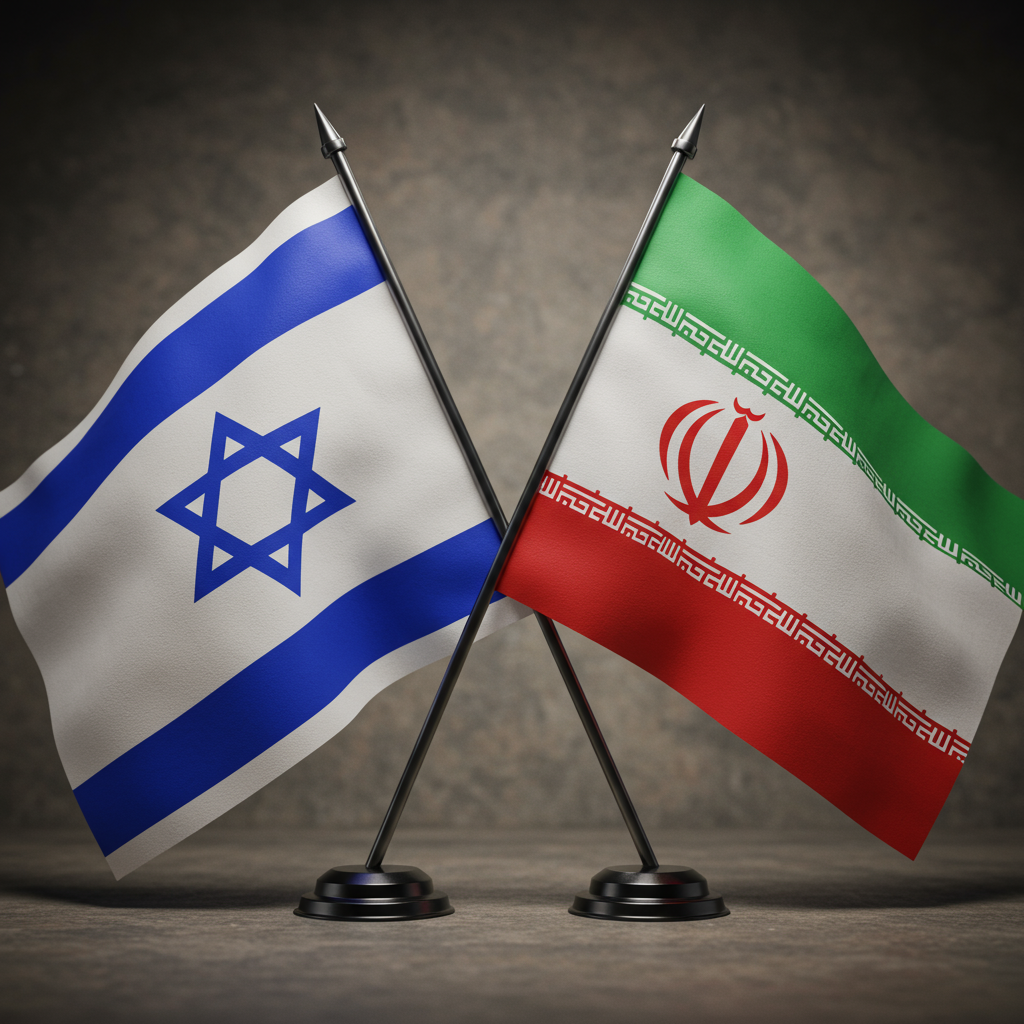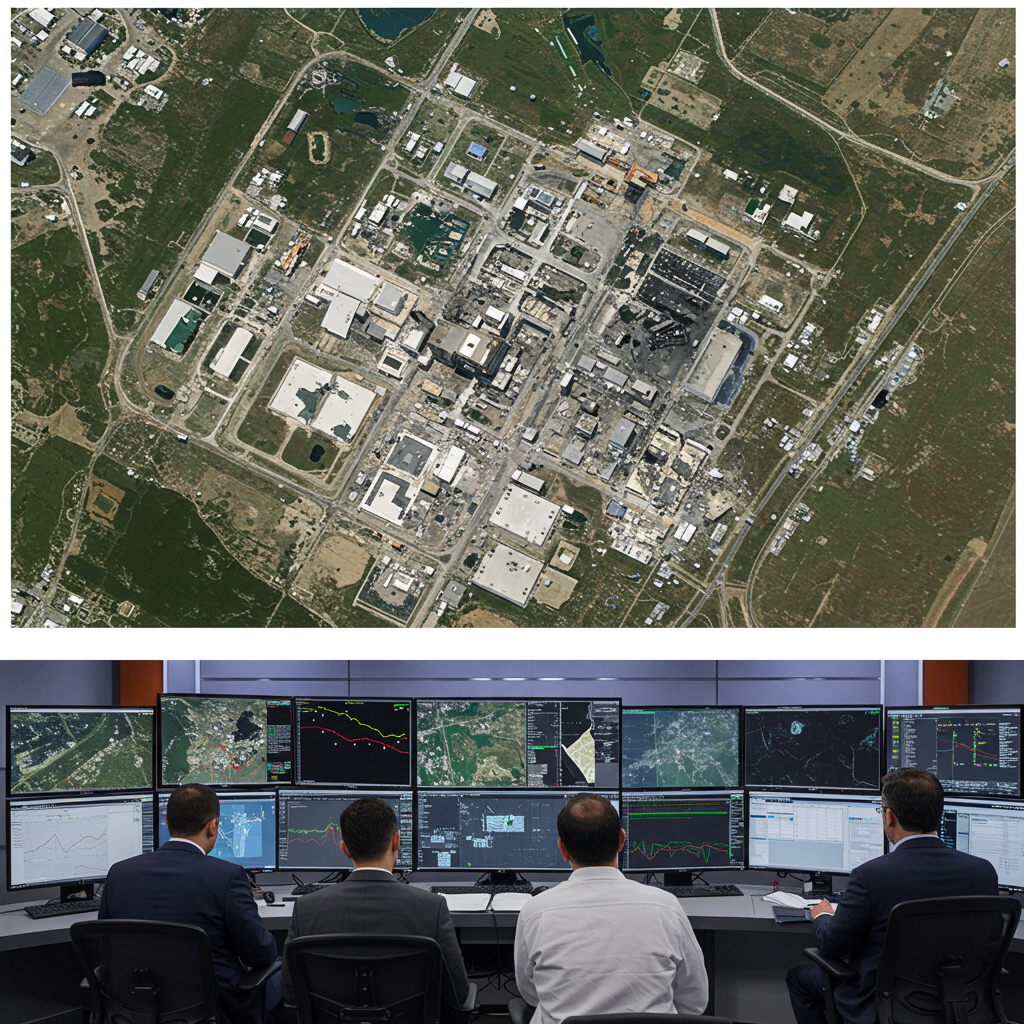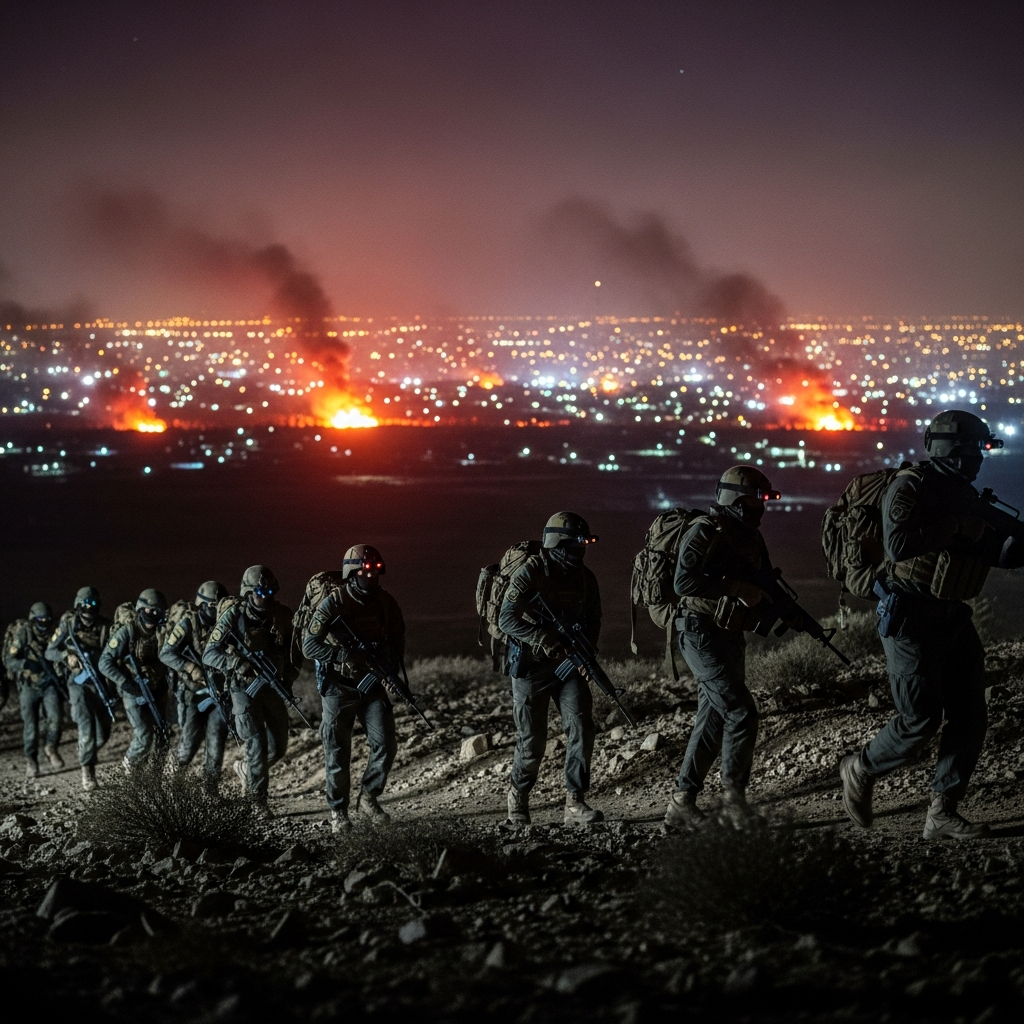The conflict between Israel and Iran has now entered its second week, marked by a renewed intensity of strikes and a disappointing lack of progress in diplomatic efforts to de-escalate the crisis. As hostilities continue, concerns are mounting over the potential targeting of nuclear facilities and the broader geopolitical consequences, including the possible involvement of the United States.
Renewed Strikes and Military Posture
Reports on Saturday confirmed Israel launched a new round of strikes targeting an Iranian nuclear research facility near Isfahan. Israeli officials confirmed hitting a centrifuge production site in the area, a location previously targeted in the conflict. While Iranian officials acknowledged damage, they reported no casualties at that specific site. The International Atomic Energy Agency (IAEA) also corroborated the strike on the Isfahan facility.
The Israeli military also reported striking military infrastructure in the oil-rich Khuzestan province in southwest Iran. Shortly after, Iranian state media documented the sound of large blasts in the cities of Mahshahr and Ahvaz, reporting that air defenses had been activated and a large column of smoke had risen above the port city of Mahshahr.
In response to ongoing Iranian actions, Israel’s military leadership is reportedly preparing for a “prolonged campaign” against the Islamic Republic. While Israel claims to have destroyed a significant portion of Iran’s missile launchers, they acknowledge that Iran still retains considerable capabilities.
Targeted Killings and Iranian Response
Amidst the exchange of strikes, Israel has also claimed responsibility for the targeted killings of several key Iranian and Iran-aligned military figures. These include Saeed Izadi, a paramilitary Revolutionary Guard commander alleged to have financed and armed Hamas for the October 7, 2023 attack, who was reportedly killed in an apartment building strike. Israel also stated it killed Behnam Shahriyari, commander of the Quds Force’s weapons transfer unit responsible for supplying Hezbollah and Hamas, in western Iran.
Adding to these, a Hezbollah official confirmed that Abu Ali Khalil, also known as Abu Ali Jawad, formerly the head of security for the late Hezbollah leader Hassan Nasrallah, was killed in an Israeli airstrike in Iran after traveling from Iraq.
Iran has responded to Israeli actions with its own barrages of drones and missiles. While Israel characterized these as a “small barrage” largely intercepted by its air defenses, the attacks have resulted in significant casualties. According to one Iranian human rights group, over 700 people have been killed in Iran, including civilians, with thousands wounded. In Israel, estimates suggest Iran has fired hundreds of missiles and thousands of drones, leading to dozens of deaths and hundreds of injuries despite effective air defenses.
Diplomacy Falters Amidst Conditions
Efforts to find a diplomatic off-ramp hit a roadblock on Friday in Geneva, where talks between European foreign ministers and Iran’s top diplomat, Abbas Araghchi, failed to achieve a breakthrough after four hours. Despite the setback, European officials expressed hope for the possibility of future negotiations.
Iranian Foreign Minister Araghchi reiterated Tehran’s openness to further dialogue but firmly stated that Iran was not interested in negotiating while Israel continued its attacks. Speaking in Istanbul later, he warned that active military involvement by the United States in the conflict would be “very, very dangerous for everyone.”
Nuclear Program at the Forefront
The status of Iran’s nuclear program remains a critical and highly contentious issue. While Iran maintains its program is purely for peaceful purposes, its enrichment of uranium up to 60% is technically just a short step away from weapons-grade material. Israel, widely believed to possess nuclear weapons itself, views Iran’s nuclear ambitions and ballistic missile arsenal as an existential threat. Israeli Prime Minister Benjamin Netanyahu has stated that the military operation will continue “for as long as it takes” to eliminate this threat.
The head of the International Atomic Energy Agency (IAEA), Rafael Mariano Grossi, has become a focal point of tension. Iranian officials have expressed strong resentment towards Grossi, with a senior adviser to Iran’s Supreme Leader, Ali Khamenei, even threatening to make him “pay” after the war, alleging that Grossi’s statements about Iran’s nuclear program incited the recent Israeli “surprise attack.” Grossi had told the UN Security Council on Friday that while Iran possesses the material needed for a nuclear bomb, the agency assesses they do not currently appear to have plans to build one. Grossi also issued a stark warning against striking Iran’s nuclear reactors, particularly the Bushehr power plant, citing the potential for a significant release of radioactivity if directly hit. Israel’s strikes have thus far focused on enrichment and research facilities rather than reactors.
International Reactions and Concerns
Beyond the failed talks, several international players have weighed in on the escalating crisis. Turkish President Recep Tayyip Erdogan called for technical and leadership-level talks between Iran and the United States, offering Turkey’s role as a facilitator and stating that the region cannot tolerate another war, adding that Israel must be “stopped immediately.” His foreign minister echoed this sentiment, stating that the Middle East faced an “Israeli problem” and urging Islamic countries to show solidarity with Iran.
French President Emmanuel Macron, speaking with his Iranian counterpart Masoud Pezeshkian, reiterated France’s clear stance that Iran must never acquire nuclear weapons and must provide full guarantees of peaceful intentions. He called for continued diplomatic efforts and also pressed for the release of two French citizens held in Iran since 2022.
Russia’s Foreign Ministry spokesperson emphasized the critical need for political and diplomatic solutions to the Iranian nuclear issue, warning of the potential for nuclear confrontation and advocating for balanced international measures to ensure both regional security and the peaceful use of nuclear energy.
Global Impact and Evacuations
The escalating conflict has had immediate effects on international citizens in the region. The United States has begun “assisted departure flights” from Israel, the first such flights offered since the Hamas attack in October 2023. US citizens in Iran wishing to leave have been advised to travel via Azerbaijan, Armenia, or Turkey if safe to do so.
Germany has withdrawn all embassy staff from Tehran and closed its embassy “until further notice,” advising the approximately 1,000 German citizens still in Iran on possibilities to leave via land borders. Italy has completed the evacuation of a second group of its citizens from Iran via Azerbaijan, with a third convoy potentially following. Italy has also chartered a flight to help evacuate its citizens from Israel via Egypt.
In Cyprus, authorities arrested a man suspected of terrorism and espionage, holding him for eight days while they investigate. Israel’s foreign minister attributed a foiled plot against Israeli citizens on the island nation to Iran’s Revolutionary Guard, thanking Cyprus for its swift actions and accusing Iran of targeting civilians abroad. The UK Foreign Office confirmed being in contact with Cyprus regarding the arrest of a British man.
Iran acknowledged detaining a German bicyclist on spying allegations, publishing footage of his arrest near the Arak heavy water reactor area. While Iran acknowledged this on Saturday, German reports suggest the arrest may have occurred last year, with the bicyclist reportedly held in Tehran’s notorious Evin prison. The German Foreign Ministry declined to comment.
Civilian Perspective and Internet Shutdown
The reality of the conflict has deeply impacted civilians. Eyewitness accounts from young people evacuated from Israel on a cruise ship to Cyprus described the terror of experiencing missile attacks firsthand, highlighting the significant difference between rockets and missiles. Approximately 1,500 young people were evacuated in this manner.
The UNHCR reported population movements occurring in both Israel and Iran due to the intensity of attacks, urging states in the region to respect the right of people to seek safety and facilitate humanitarian access, warning against allowing another refugee crisis.
Adding to the civilian challenges, internet access across Iran experienced a renewed “collapse” on Saturday after a brief period of restoration, isolating residents. While Iran cited concerns about Israeli cyberattacks for the nationwide shutdown of mobile and web services, many Iranians and activists view it as another instance of state information control often deployed during periods of unrest. State media later reported that access to “international” internet should be restored across the country by 8 p.m. local time.
As the second week unfolds, the conflict remains volatile, with military action continuing, diplomatic avenues proving challenging, and the international community closely watching developments, particularly those concerning the potential for nuclear escalation and broader regional instability.



